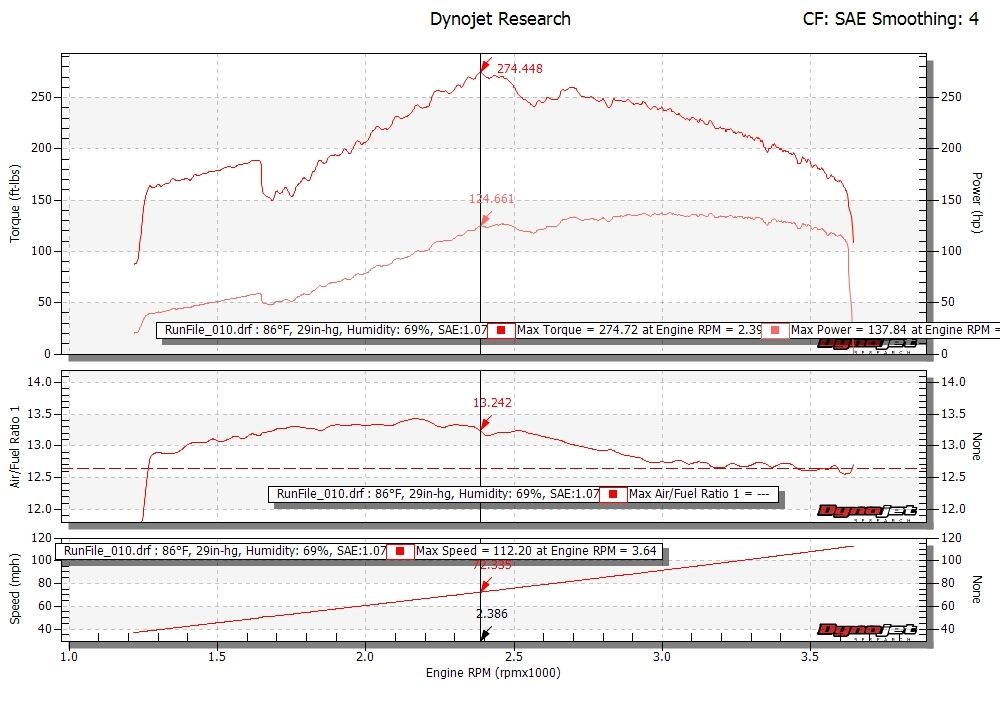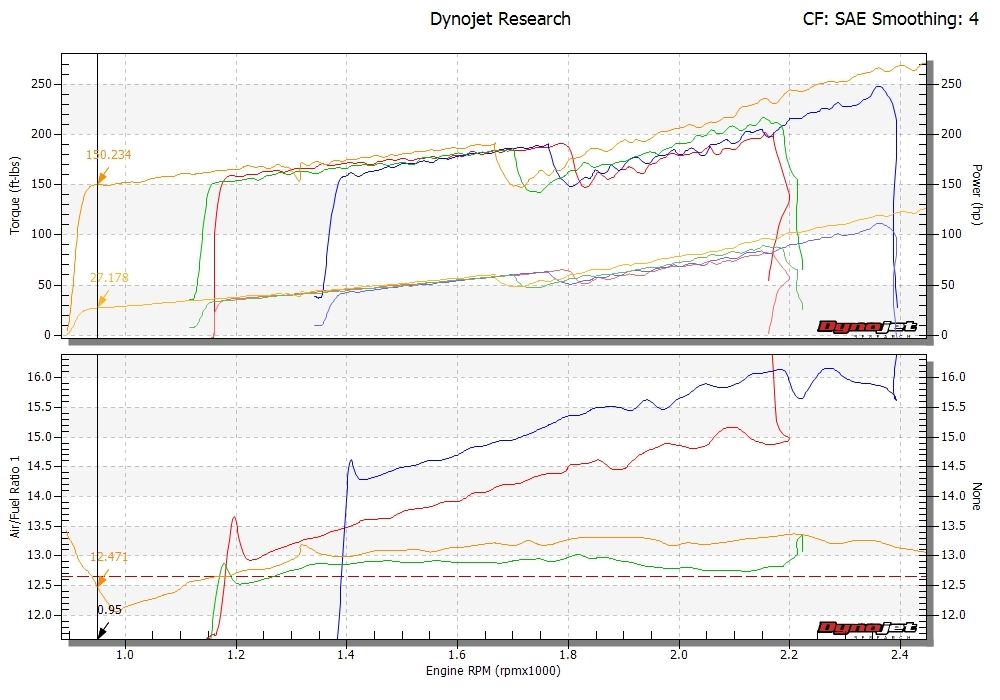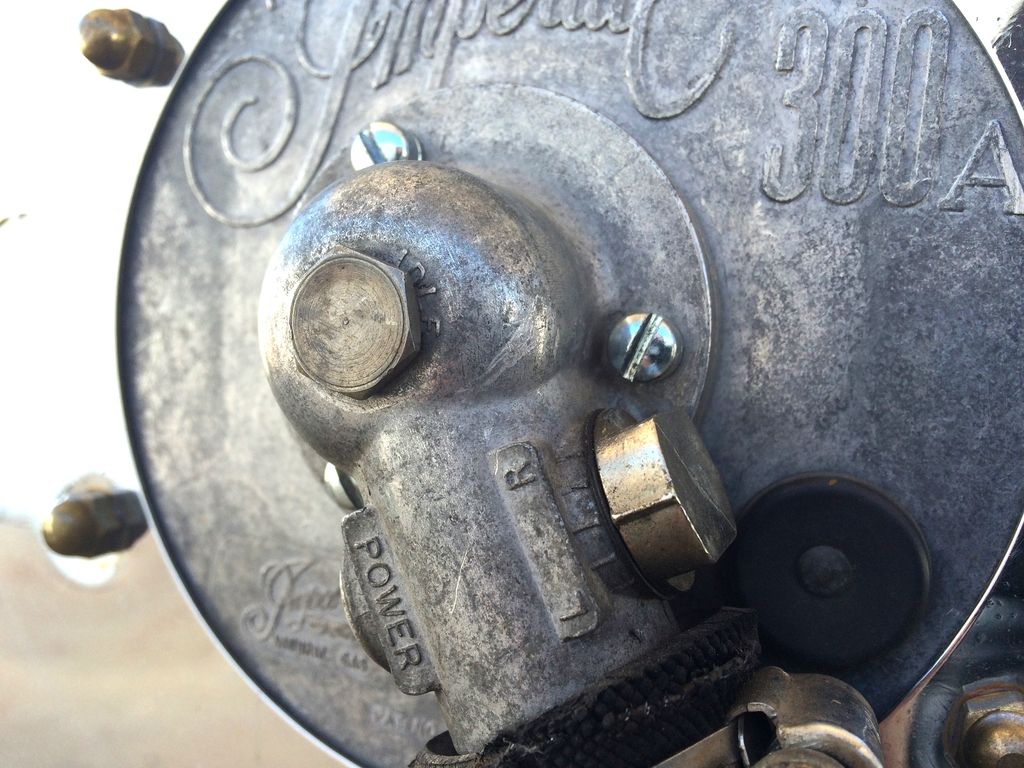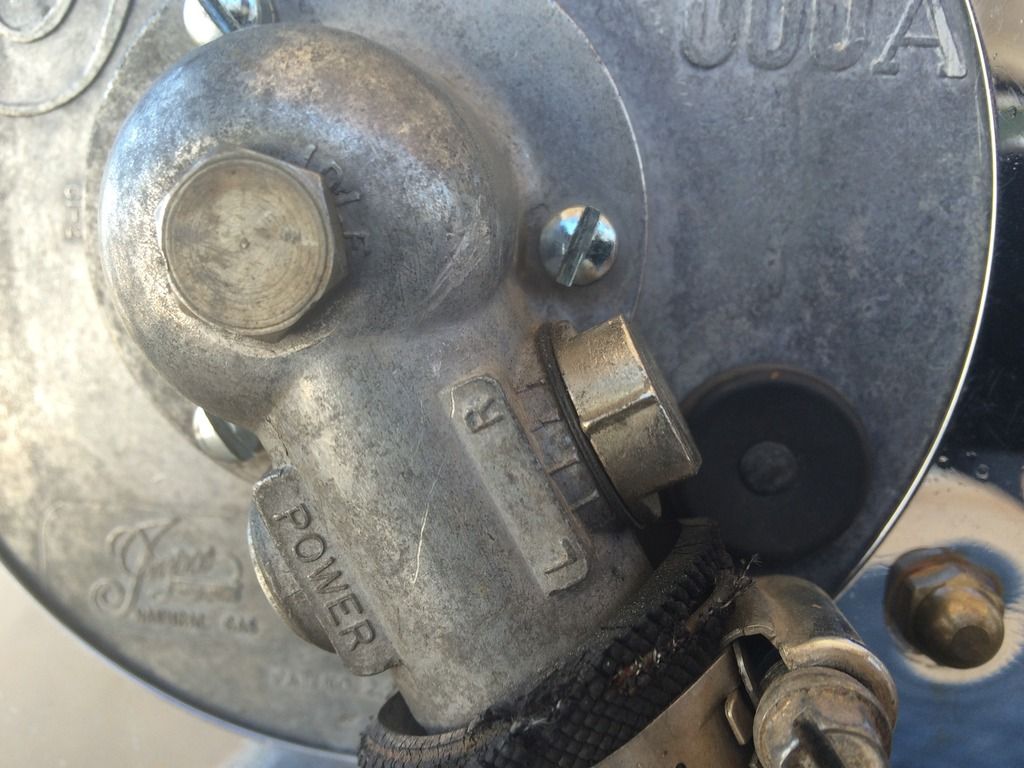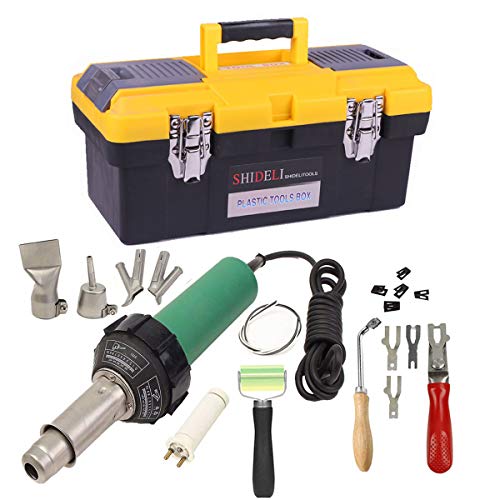8literbeater
Well-known member
What are the opinions on this timing curve?
It's a Chevy 250, with 10# of boost (right now, I might go lower), and of course it's running propane. It's draw through, with no intercooler. I called NGK back when I bought spark plugs, and bought the plugs that the tech recommended, based on these things. (Hotter for propane, cooler for turbo, I can't remember which way for the altitude here, and another step cooler because of the normally high ambient temperatures here.) Update: I checked the plugs, and they're UR6. The original spec plug is UR4, so these are 2 steps cooler.
I don't really care how much power it makes, as long as it runs smooth, and I'd like to get decent mileage. I'm not using the vacuum advance right now, but I ordered one that only advances 5°, and starts coming in at 6"Hg, and the full 5° at 13"Hg. As long as it does what it's supposed to do, I'll put that on later.
The blue is what I got from testing my current setup. The red is what I'm thinking of setting it to.
The problem is, since my tach doesn't work, I can't say where the boost is coming on, or how fast.
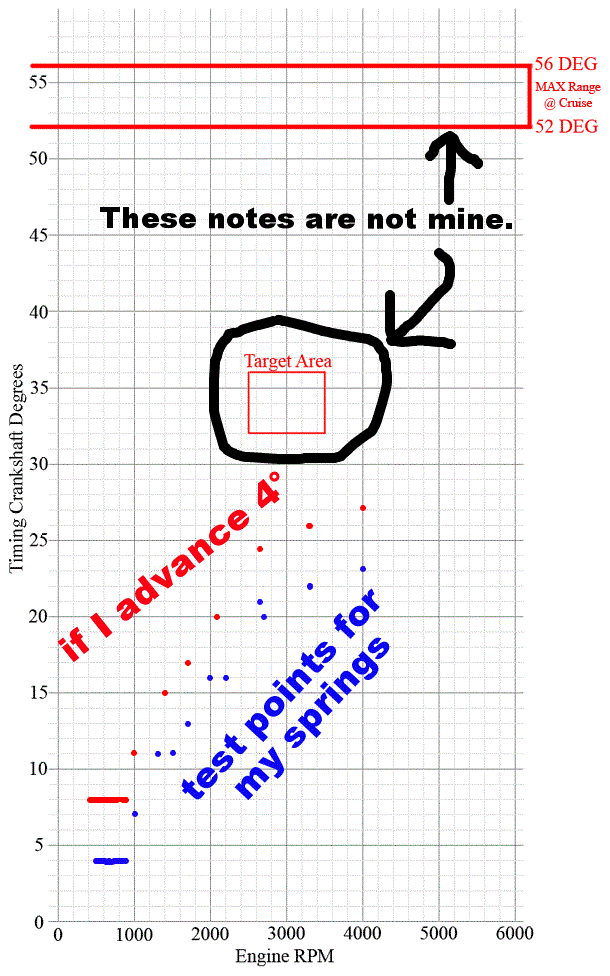
I found some interesting stuff in this book. ↓↓↓
ASTM LP-Gas Engine Fuels STP-525
https://books.google.com/books?id=Cm...%20130&f=false
It's a Chevy 250, with 10# of boost (right now, I might go lower), and of course it's running propane. It's draw through, with no intercooler. I called NGK back when I bought spark plugs, and bought the plugs that the tech recommended, based on these things. (Hotter for propane, cooler for turbo, I can't remember which way for the altitude here, and another step cooler because of the normally high ambient temperatures here.) Update: I checked the plugs, and they're UR6. The original spec plug is UR4, so these are 2 steps cooler.
I don't really care how much power it makes, as long as it runs smooth, and I'd like to get decent mileage. I'm not using the vacuum advance right now, but I ordered one that only advances 5°, and starts coming in at 6"Hg, and the full 5° at 13"Hg. As long as it does what it's supposed to do, I'll put that on later.
The blue is what I got from testing my current setup. The red is what I'm thinking of setting it to.
The problem is, since my tach doesn't work, I can't say where the boost is coming on, or how fast.

I found some interesting stuff in this book. ↓↓↓
ASTM LP-Gas Engine Fuels STP-525
https://books.google.com/books?id=Cm...%20130&f=false
Last edited:

